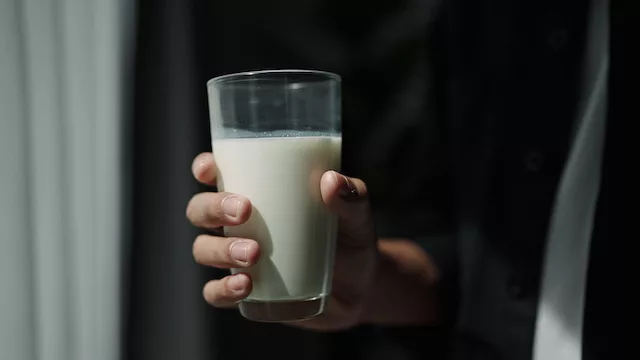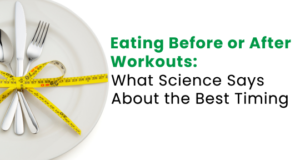In 2024, countless viral food trends and hot dietary takes made their rounds on social media and mainstream news alike. Some of which were (and continue to be) more controversial than others… and potentially even dangerous to buy into.
“Food trends often go viral due to a combination of factors, including social media influence, celebrity endorsements, and attractive promises,” says Lauren Manaker, MS, RDN, LD, CLEC, CPT, a dietitian based in Charleston, South Carolina. Unfortunately, we’re living in an age in which it’s all too common (and sometimes easy) to fall for misleading hype over science, which is why consumers need to be savvier than ever.
In the spirit of the new year, we’re recapping which viral food trends should stay in the past and why, according to dietitians. Plus: how to prioritize evidence-based nutrition over fast fads through 2025 and beyond.
7 Food Trends to Leave Behind in 2025
1. Avoiding Seed Oils at All Costs
Seed oils emerged as one of the biggest dietary bad guys of 2024. But according to Brooklyn–based dietitian Maddie Pasquariello, MS, RDN, the fear-mongering about seed oils is ill-advised.
“One reason this trend took off is because of people mistakenly associating the rise in consumption of ultra-processed foods—which are often high in sodium, sugar, and fat—causing worsened health outcomes with seed oils specifically,” she explains. “But in fact, if these oils (which are generally good sources of unsaturated fat) are replacing sources of saturated fat in the diet, they can actually have a positive effect on health.” She adds that there’s no evidence to suggest that seed oils are any more harmful or inflammatory than other kinds of oils.
Rather than bending over backwards to avoid seed oils at all costs, simply be mindful of your intake and conscious of other sources of fat in your diet. “If you cook with oils in moderation, replace sources of saturated fat [e.g., butter and coconut oil] with unsaturated fat when possible, and regularly consume other sources of healthy fats like nuts, seeds, and avocado, you’re on the right track,” Pasquariello shares.
2. Taking Olive Oil Shots
Speaking of oils, 2024 saw the emergence of taking shots of olive oil daily in the name of heart health. While olive oil—which is rich in antioxidants, has anti-inflammatory properties, and is a significant part of the pro-aging Mediterranean diet—is worthy to include in your nutrition lineup, downing shots of it doesn’t get the green light from Pasquariello.
“There’s no reason to be chugging olive oil or any other kind of oil,” she says. “You likely already get enough fat in your diet without trying too hard.” In case you aren’t, she advises opting for more modest dietary tweaks—like adding avocado, pumpkin seeds, or a splash (not a shot) of olive oil to your meals.
3. Drinking Raw Milk
“One of the most prevalent and perhaps dangerous of all of the food trends to come out of this past year is the idea that drinking raw milk is better for us than drinking pasteurized milk,” Pasquariello shares. The FDA warns that raw milk can be contaminated with pathogens including but not limited to salmonella, E. coli, and listeria, posing serious and sometimes lethal dangers.


“Spreading fear and misinformation over safe, beneficial practices like pasteurization is extremely dangerous and deceitful,” the dietitian warns. As such, she suggests scrolling past the next viral video or clickbait article touting the purported benefits of raw milk, as it poses more risks than rewards.
4. Juice Cleanses and Detox Diets
While these types of protocols are nothing new, they tend to get center stage again to kickstart New Year’s weight loss goals. “These trends often claim to detoxify the body and promote weight loss. However, there is limited scientific evidence to support these claims,” says Manaker. While you might lose weight in a relatively short span of time by doing these cleanses and detoxes, that’s typically because they severely restrict calories (not to mention they lack essential nutrients and aren’t sustainable), so you’ll likely find yourself bouncing back to your initial weight sooner than later.
“Instead, focus on a balanced diet rich in whole foods including fruits, vegetables, lean proteins, and whole grains for sustainable and long-term health benefits,” Manaker advises.
5. Vilifying False ‘Toxins’
Sure, toxins certainly sound scary enough—but in certain circles, the storytelling about what toxins actually are and aren’t gets misconstrued. As Pasquariello explains, one food trend that proliferated this year is “the idea that all conventional food products contain toxins or ‘chemicals,’ and that the only way to avoid consuming them is by buying 100-percent organic, local, farm-raised, and grass-fed everything.” However, this is neither affordable nor accessible for most—not to mention it can lead to a slippery slope of shame, insecurity, and sometimes even obsession.
“Those throwing around terms like toxins and chemicals when it comes to food are trying to scare, shame, or get something from you,” the dietitian continues. “There’s no real meaning or message behind these claims as it is, so it’s best to unfollow and ignore them.”
Better alternatives to live in good health from one day to the next include:
- Eating diverse and colorful whole foods
- Avoiding ultra-processed foods (namely those with excess sodium and sugar) when possible
- Exercising regularly
6. Hypervigilance Over Glucose Spikes
From the prevalence of glucose influencers to the rise of CGMs for biohacking, many people are now led to believe that a single misstep or a carb-rich meal could lead them to develop diabetes. Yet according to Pasquariello, this type of fear-stoking is misleading and unhelpful.
“Type 2 diabetes develops due to being in an energy surplus over a long period of time,” she begins, adding that carbs aren’t the sole culprit here. “Your body’s cells then can’t use the excess energy and become resistant to insulin, so they stop taking up glucose, which causes blood sugar levels to rise and eventually damage to the pancreas, poor blood sugar control, and diabetes.” (Genetics also factor into the equation.)
Rather than worrying about spiking your blood sugar—which naturally occurs following most meals—the dietitian suggests keeping your calories within healthy bounds over time and abiding by a consistent exercise regimen.
7. Linking Foods to Cortisol Levels
While cortisol often gets a bad rap (i.e., it’s often referred to as the stress hormone), it’s important for the likes of giving us energy upon waking up and staying focused. It also naturally rises after eating our main meals. As such, Pasquariello wants to share a friendly reminder that cortisol isn’t the demon it’s often portrayed to be—and that you shouldn’t put weight into social media posts suggesting that you have to craft your diet around avoiding cortisol spikes.
“There’s no reason to avoid any specific food in an effort to lower your cortisol, nor do you need to lower your cortisol levels to avoid gaining body fat,” she explains. For most, finding healthy outlets to manage stress and getting enough R&R should do the trick to keep your cortisol within normal ranges.
What Makes a Food Trend Legit?
While it might be compelling to put your faith into the newest, buzziest food trends that sound too good to be true, chances are they’ll come up short.
To decipher if a food trend is legitimate, we need to put in some due diligence to separate fact from fiction. We’d be all the wiser to:
- Investigate source credibility. Manaker advises looking to reputable organizations, registered dietitians, and well-established research institutions (say, over influencers, paid spokespeople, and special interest groups with something to gain) to get pertinent intel on nutrition and wellness.
- Vet claims with research. “Before blindly following a trend, conduct your own research and fact-check information,” Manaker advises. Bonus points go to those who look up scientific studies and read the fine print on claims.
- Resist the urge to resist science. Pasquariello notes that there’s a growing resistance to conventional sources of information on diet and health—in no small part thanks to social media, alternative media, and misinformed non-professionals. “It should be emphasized here that food safety and public health messaging from bodies like the FDA is designed to keep you and your family safer. It is the result of decades, if not centuries, of research using scientific methods, to establish more rigorous standards to improve the health of all people,” she shares. There’s a time and place for a healthy dose of skepticism. By following the tips above, you should have a better idea of when and where to direct it.
Although it might not be sexy or exciting, prioritizing tried-and-true dietary and lifestyle practices can contribute to optimal health outcomes. To simplify things, Manaker says you’ll put yourself in a prized position by:
- Eating mindfully by paying attention to hunger cues and savoring each bite
- Preparing balanced meals
- Maintaining portion control
- Staying hydrated
- Working out regularly to promote physical and mental well-being
Food Trend FAQs
Are all food trends bad?
Not necessarily. It’s important to investigate the quality of the source and see if the claims are sound. Some food trends are backed by evidence—say, the Mediterranean diet and eating 30 plants a week for gut health—whereas others lack scientific backing and can even be dangerous to follow.
How can I tell if a trend is credible?
The best sources for information on food and diet include registered dietitians, peer-reviewed studies in reputable journals, and unbiased media outlets with no vested interests.
What’s the best diet for me in 2025?
There’s no one diet that’s ideal for everyone, but dietary diversity and balance are key tenets to lead the way. “Strive for balanced meals that include a variety of whole foods including fruits, vegetables, lean proteins, healthy fats, and whole grains,” Manaker advises. (Of course, you’ll need to pivot based on your own individualized concerns, including food allergies and intolerances.) For personalized support, consult a registered dietitian.




